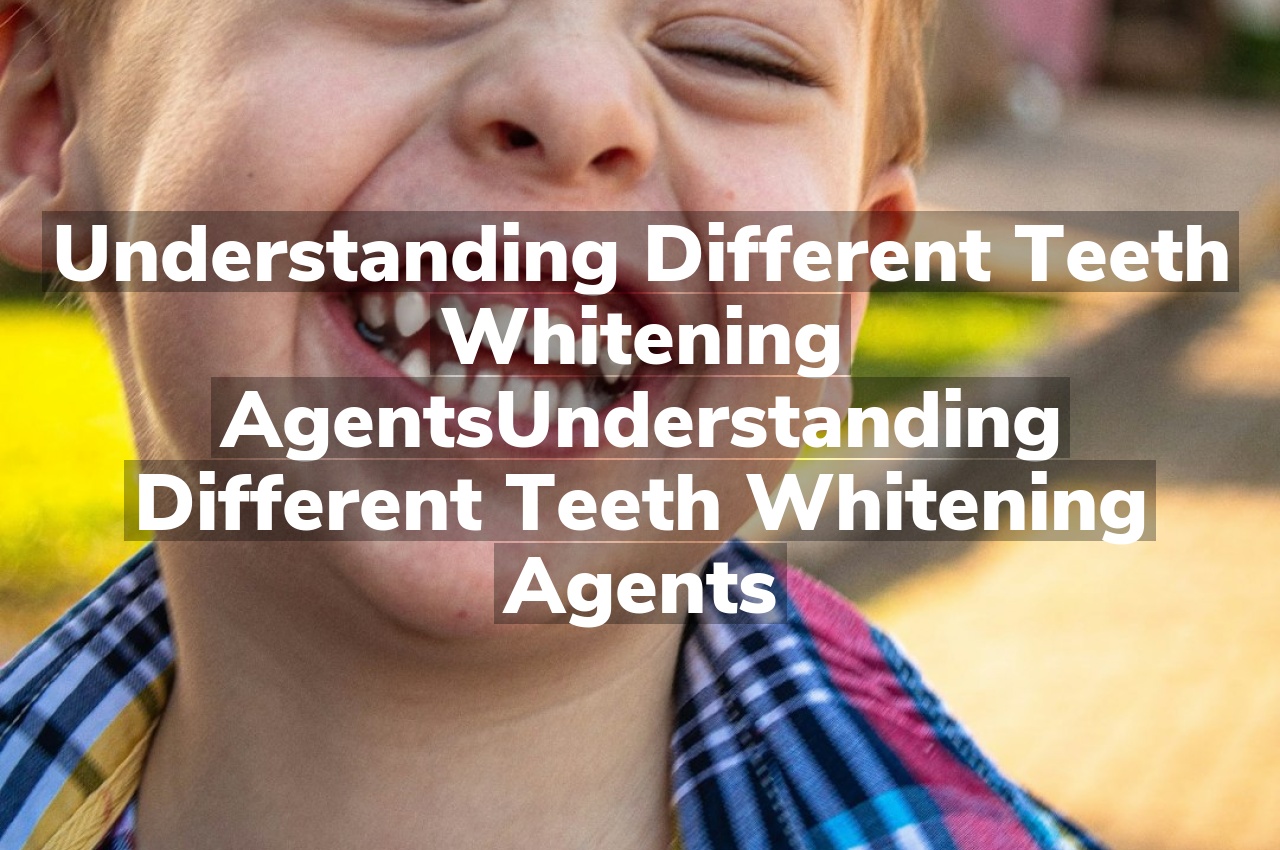Have you ever wondered what makes teeth whitening agents effective at restoring the sparkle to your smile? These agents typically contain ingredients that can reduce or remove surface stains on teeth, enhancing their overall appearance. The effectiveness and usage of these substances can vary widely, depending on their specific chemical properties.
Types of Professional Whitening Agents
When considering professional teeth whitening, it’s important to understand the different agents used by dental professionals to achieve brighter smiles. Typically, these agents contain higher concentrations of bleaching chemicals compared to over-the-counter products, which allows them to provide more significant results after treatment in a dental office. The primary chemicals used include hydrogen peroxide and carbamide peroxide, both of which act to break down and remove stains on the enamel effectively.
For those interested in the longevity of such treatments, it’s useful to consider various factors that influence how long the whitening effects last. You can learn more about this by reading Exploring the Durability of Teeth Whitening Treatments. Understanding these aspects can help individuals set realistic expectations about professional teeth whitening procedures without delving into specific products or personalized advice.
Natural Sources of Whitening Agents
Exploring the realm of natural sources for teeth whitening, one finds a variety of foods and substances that have been historically recognized for their cleansing properties. Fruits like strawberries and apples are often discussed in the context of natural brightness due to their texture and acidic content which can help in cleaning the surface of the teeth. Additionally, baking soda, a common kitchen ingredient, has been noted for its abrasive nature which might assist in removing surface stains on teeth.
While discussing natural elements associated with teeth whitening, it’s essential to consider professional advice for effective and safe results. For those interested in exploring professional teeth whitening options, you might consider visiting Somers Teeth Whitening Services to learn more about available treatments.
Safety Profiles of Whitening Agents
When considering teeth whitening, understanding the safety profiles of various whitening agents is crucial. These agents, typically found in treatments used to brighten dental enamel, have been evaluated for safety and effectiveness through numerous studies. Generally, these substances work by addressing surface and deeper stains on the teeth, but their components can vary significantly. It’s important for consumers to be aware that the safety of these agents can depend on the concentration of the active ingredients and the method of application, which are designed to minimize potential risks such as tooth sensitivity or gum irritation. Regulatory bodies oversee the approval and use of these agents to ensure they meet safety standards before they are available on the market.
Duration of Effects from Teeth Whitening Agents
The duration of effects from teeth whitening agents can vary widely depending on several factors including the type of agent used and individual dental hygiene practices. Generally, the results may last from a few months to a few years, highlighting the importance of understanding the characteristics of different agents. For those interested in exploring their options further, consulting with a professional like a Somers Dentist at Rosen Dental PC can provide additional insights.
Comparative Efficacy of Whitening Agents
When exploring the landscape of teeth whitening, it’s essential to understand that various agents are used to achieve brighter smiles, each with differing levels of effectiveness. These agents work through distinct mechanisms to address surface stains and deeper discoloration. The efficacy of each whitening agent can vary widely based on its active ingredients and the concentration in which they are used. As such, the results can differ significantly from one agent to another, influencing how effectively they can restore the natural whiteness of teeth without altering their structure or causing undue harm.
Conclusion
For further inquiries, please call us at 914-277-8400 or read our reviews on Google Maps.

